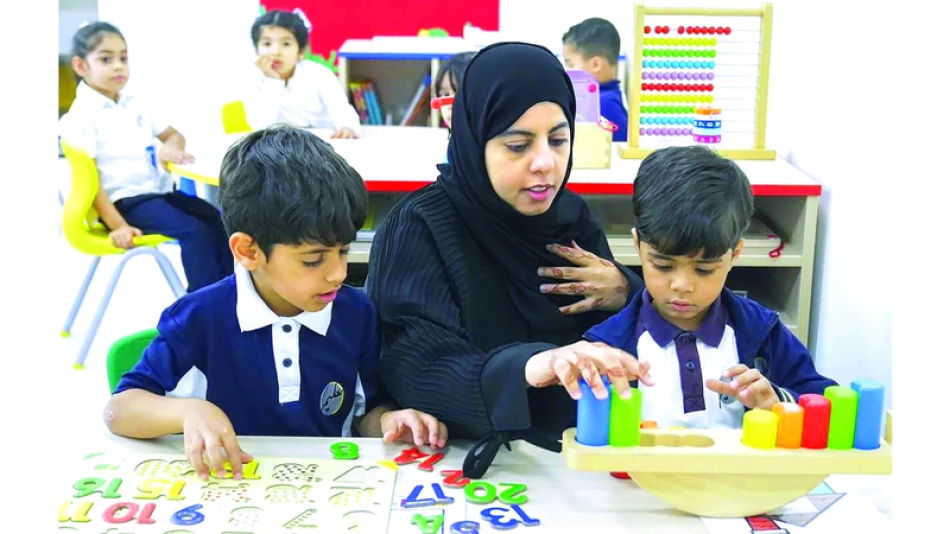
Education Ministry Unveils Comprehensive Plans to Address Students' Skill and Academic Gaps
UAE Education Ministry Launches Data-Driven Learning Recovery Initiative to Address Academic Gaps
The UAE Ministry of Education has mandated schools nationwide to develop comprehensive intervention plans targeting skill and learning gaps across all educational levels, marking a significant shift toward evidence-based teaching methods. Rather than simply completing curriculum requirements, the new framework emphasizes using assessment data as a cornerstone for enhancing instructional practices that meet individual student needs for the 2025-2026 academic year.
Four-Pillar Framework for Educational Recovery
The ministry's student assessment policy outlines four critical elements that schools must incorporate into their intervention strategies. The framework represents a systematic approach to addressing learning losses that have become increasingly prevalent in education systems globally.
Strategic Time Allocation and Support
Schools must dedicate appropriate time for implementing intervention plans and teaching strategies tailored to student needs. This includes providing additional support mechanisms designed to improve learning outcomes, acknowledging that one-size-fits-all approaches often fail to address diverse learning requirements.
Precise Educational Objectives
The second pillar requires schools to establish clear and precise learning objectives that serve as the foundation for effective educational practices. This specificity enables teachers to design targeted interventions rather than broad, unfocused remediation efforts.
Best Practices Integration and Continuous Assessment
Evidence-Based Teaching Methods
The ministry's guidance emphasizes leveraging specialized training, research findings, and successful educational experiments to identify optimal teaching practices. This approach mirrors international trends where countries like Singapore and Finland have successfully improved educational outcomes through research-backed methodologies.
Measurement and Evaluation Systems
The fourth element focuses on measuring intervention effectiveness through appropriate assessment tools, including school-based evaluations. This data-driven approach allows for real-time adjustments and ensures accountability in educational delivery.
Assessment as a Strategic Tool
The ministry positions school assessments as fundamental instruments for determining student engagement and comprehension levels. These evaluations enable teachers to track academic progress continuously while adapting instruction plans based on real-time feedback.
The assessment objectives extend beyond traditional testing to measure cognitive skills and students' ability to apply knowledge in new contexts. Schools must implement standardized frameworks for observation-based assessment tools appropriate for each educational stage, while using classroom evaluations to gauge student readiness for end-of-term examinations.
Formative Assessment Revolution
The policy introduces formative assessments—ungraded evaluations that monitor daily student performance. These tools help teachers understand concept comprehension through varied methods including response cards, specific signals, or end-of-class activities like "task completion cards." This approach enables immediate gap identification and future lesson planning adjustments.
Bloom's Taxonomy Integration
The guidance emphasizes implementing Bloom's Cognitive Taxonomy in school assessments, recognizing it as an effective tool for aligning assessment results with learning objectives. This framework ensures teaching clarity and consistency with targeted outcomes while providing a graduated structure for advancing students from lower to higher-order thinking skills.
Six-Level Cognitive Progression
The taxonomy progresses through six levels: remembering basic information retrieval, understanding through explanation and interpretation, applying knowledge in new situations, analyzing information breakdown and connections, evaluating through opinion formation and justification, and creating through innovative idea generation and project design.
Market and Policy Implications
This comprehensive educational reform positions the UAE alongside leading education systems that prioritize data-driven instruction and personalized learning approaches. The initiative reflects broader regional competition for educational excellence, particularly as Gulf states invest heavily in human capital development to diversify their economies beyond oil dependence.
The systematic approach to learning recovery could serve as a model for other nations grappling with post-pandemic educational challenges, potentially influencing international education policy and assessment practices.
Most Viewed News

 Sara Khaled
Sara Khaled






